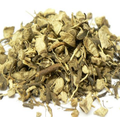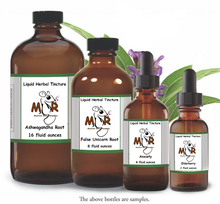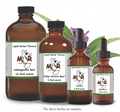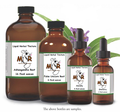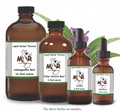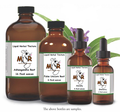 Loading... Please wait...
Loading... Please wait...- Home
- Herbal Tinctures
- Herbal Tinctures - Single Herbs
- Blue Vervain Herbal Tincture
- Home
- Herbal Tinctures
- Blue Vervain Herbal Tincture
Blue Vervain Herbal Tincture
Product Description
Blue Vervain Herbal Tincture
Also Known As - Verbena officinalis, Verbena, Verbenaca, Vervain, Veneris Herba, Herba Sacra, Holy Wort, Druid’s Weed, Enchanter’s Plant, Juno’s Tears, Brittanica, Pigeon’s Grass, Pigeonwood, Simpler’s Joy, Ma Bian Cao.
Origin - Elbe, Washington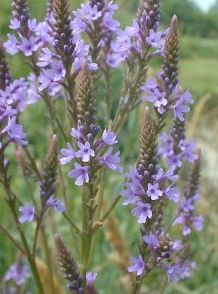
Overview - Blue Vervain is also known as American Blue Vervain and Simpler's Joy. This plant is in the Plant Family Verbenacea, but not to be confused with Lemon Verbena (Aloysia triphylla). These are two different plants only belonging to the same Plant Family. Blue Vervain is indigenous to the United States growing naturally along roadsides and tall grassy fields flowering between June and September. It is a tall (3-4 feet), slender, elegant, perennial plant with opposing leaves which are lobed and serrated in shape and have small purplish-blue flowers. Historically it was listed for use by King's American Dispensatory as, tonic, emetic, expectorant, and sudorific. A Sudorific is a substance that causes or increases sweating. It is a plant that is overlooked by modern herbalists, but one that deserves renewed interest for its versatile influences on numerous systems.
- Western European Druids collected verbena when Sirius was rising and the moon was dark. They used it for divination, consecration, and cleansing sacred spaces. Vervain is said to have been one of the ingredients of the famed Cauldron of Cerridwen, along with rowan berries, sea water, celandine and flixweed. This potion was said to create energy for bardic song and storytelling. Vervain is still thought to bring good fortune to poets and storytellers. Vervain is also added to wine and taken on Samhain to aid in connecting with ancestor spirits.
Medicinal Uses - Common Vervain is considered to be a very powerful relaxant, diaphoretic antispasmodic and emenagogue. It can be used in the treatment of depression, melancholia, asthma, migraines, insomnia and nervous cough. It can be very helpful in different cases of liver conditions, jaundice and gallstones. It is also considered to be an effective remedy for infected gums, tooth decay, halitosis and tonsillitis. Used as a poultice, Common Vervain can be applied to insect bites, sprains and bruises. As an ointment, it acts as a beneficial remedy against eczema, wounds, weeping sores and painful neuralgia.
Active Constituents - Adenosine, aucubin, beta-carotene, caffeic-acid, citral, hastatoside, lupeol, ursolic-acid, verbenalin, verbenin.
Parts Used - The above-ground parts of the plant gathered before flowering, dried. 1:3 Ratio
Traditionally used as a tea, but also as a tincture, syrup, foot soak or bath herb, salve or cream.
Suggested preparation: Vervain can be taken as a tea or a tincture. Large doses can make some people nauseous so I would suggest no more than one cup of tea 2-3 times per day or, if taking in tincture form to start with 1-5 drops and then increase as tolerated up to 20 drops 3x per day.
Precautions - Since the herb can stimulate uterine contractions, avoid during pregnancy. Should be used with caution with sedative medication but is not an absolute contraindication.
Disclaimer - The information presented herein by Mountain Maus’ Remedies is intended for educational purposes only. These statements have not been evaluated by the FDA and are not intended to diagnose, cure, treat or prevent disease. Individual results may vary, and before using any supplements, it is always advisable to consult with your own health care provider


